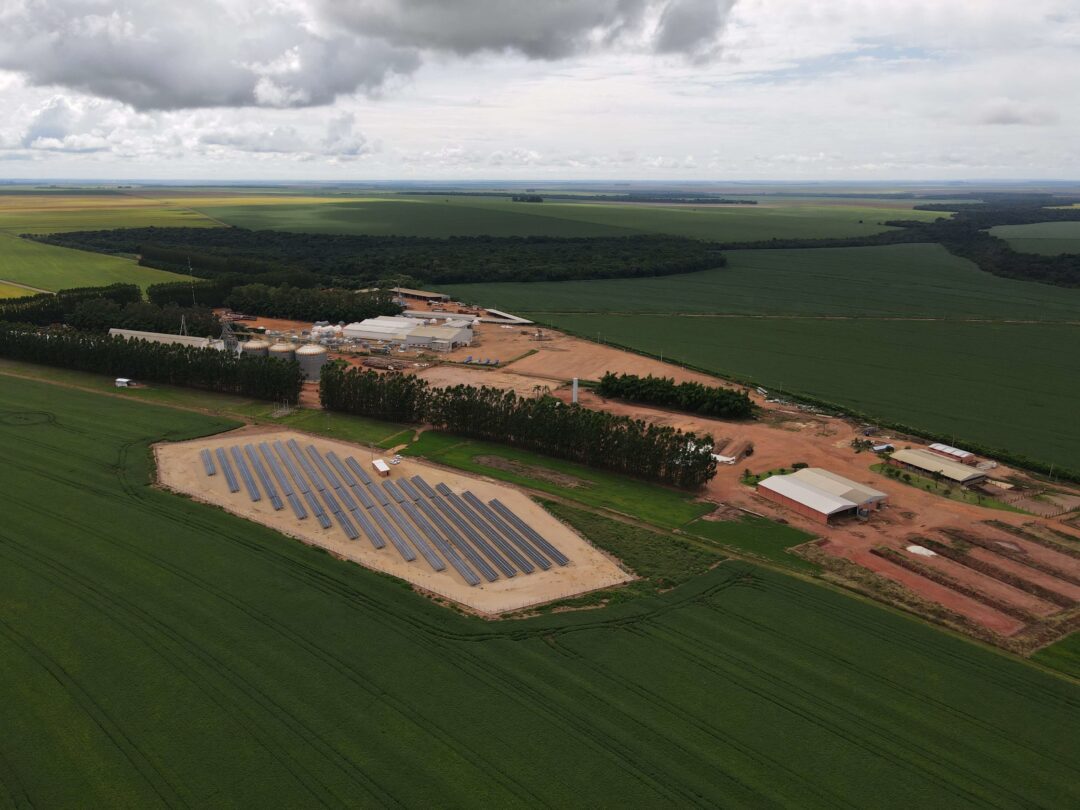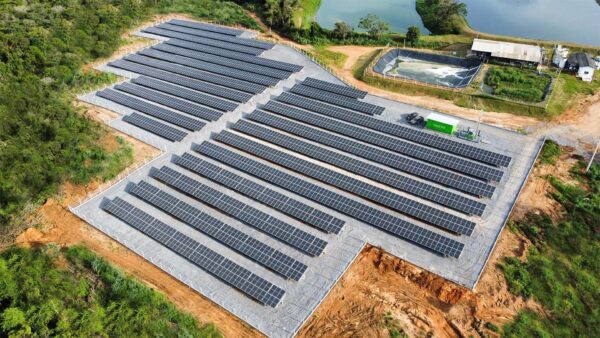Decades ago, Brazil began the path that would make it one of the main food producers and exporters in the world. The path has been long and, according to Embrapa, Brazilian production has increased a lot since then, mainly due to the efforts of researchers and rural producers.
Today, the great challenge is to raise productivity rates even further, increasing quality and profitability. Technological innovation and sustainability have been the protagonists of many of the solutions created in this regard, especially those focused on eliminating waste and reducing operating costs in agricultural activity.
Solar energy is one of these solutions and, increasingly, has attracted producers due to savings and competitiveness. The promise of reduction is verifiable, and the incentives are increasing, which allows the transition in a calculated way and guarantees the return on investment. The scarcity of natural resources also contributes to making solar energy even more advantageous, as it is linked to an abundant resource: the sun.
Bonö Fotovoltaico
Sure of the benefits of solar energy for agribusiness, the Brazilian company, Bonö Fotovoltaico, has invested in creating a structure to meet the demands related to the consumption of electricity in rural properties. This includes a structured engineering team, specialized in photovoltaic solar energy, and a customer service team focused on ensuring that all the needs of rural producers are met.
The company has a technical team focused on developing solutions for rural properties and, in this sense, has been creating photovoltaic power plants that have the capacity to fully supply the processes. This means that a rural property can use solar energy to power agricultural machinery and equipment, in addition to providing light, heat, cooling or ventilation in the premises.
Among the projects developed by Bonö, the following clients stand out: AMBEV, MRV, Integrada Cooperativa, GCAP, POLO PLAY and FIAT MARAJÓ. In addition, the company has just expanded its operations in the Mato Grosso region, designing four of the largest plants in the midwest region of the country. Thus, even with the coronavirus crisis, according to Bonö's commercial director, Marcelo Abuhamad, Bonö's revenues in 2020 increased.
“Although we faced the effects of the pandemic, the recovery in terms of billing and project execution was quick. I believe that this is precisely because Bonö is consolidated among rural producers”, says Abuhamad.
According to Abuhamad, one of Bonö's great differentials is the personalized consulting service, which means much more than a commercial proposal. The consultancy carries out a thorough analysis of the customer's invoice, including whether it is willing to go to the rural property to carry out the effective sizing of the photovoltaic solution.

Technical and financial feasibility
In addition to personalized consulting, Bonö has ways that bring the client closer to the alternatives for the financial feasibility of the project. Working in partnership with the main financial institutions in the country, the company structures credit lines so that the monthly savings obtained by the system is greater than the financing portion. This means that the client does not need to reduce the capital to obtain the technology.
According to the information collected by consultants and by the company's technical engineering staff, Bonö comes out ahead in terms of financial conditions, as it has a contract with FEBRARAN.
Understanding Bonö Fotovoltaico project
A photovoltaic project requires a lot of team integrity and synergy, as it is a long-term acquisition. Every detail makes the difference between a bad project and a well-done project. According to Bonö’s Head of Commercial, Nelson Orcioli, “it is the excellence in every detail that makes Bonö's projects the best on the market”.
For Orcioli, an example of this is the analysis of roofs and types of screws that are used to fix the project. An adequate structure must comply with ABNT standards, which require a minimum building coverage of 25kg per m² of modules.
Another crucial detail, according to Orcioli, refers to the electrical part. A detailed customer analysis is required: from the input standard to the inverters, meeting all current regulations of the local power utility. In addition, it is essential to consider whether the customer has a diesel generator, since, if so, it is important that the project includes the generator so that both have the same communication when injecting energy.
“Care with direct current is part of Bonö's requirements, since any bad contact can generate an “electrical arc” and be highly dangerous. We deliver an efficient and safe solution, and we guarantee it technically”, declares Orcioli.
Ground mounted solar plants
According to Bonö's engineering director, Vitor Ferrari, to design large plants, it is very important to study the soil. The standardized penetration test, also called the Standart Penetration Test (SPT), the Planialtimetric Survey (performed to verify the plan of the area) and the Pull-out must be considered in all projects.
“We consider the three soil study processes in every Bonö's projects. Our goal is to ensure that the structure is completely fixed to the ground, so we use specific machinery to carry out this study. In addition, the variation of Brazilian regions causes the photovoltaic modules to be inclined, according to the latitude of each city. For this reason, we carry out training for the execution of large projects”, says Ferrari.

Post-installation of ground mounted solar plants
According to Ferrari, the commissioning of the system is guaranteed through rigorous execution of the project and its quality control. Tests such as the megohmmeter and Hipot check the integrity of the cables, assessing whether they are well insulated, so that power generation is successfully generated.
The verification of the integrity and efficiency of the photovoltaic modules takes place through the I-V Curve Tracer test, which is carried out so that the client is completely assured that his ground plant is working correctly.

ABOUT THE COMPANY
Founded in 2016, in the city of Londrina, Bono Fotovoltaico is already considered the largest in Paraná and one of the largest in the country. The business was created by young people who saw solar energy as an opportunity to meet the growing demand in the sector. In 2019, it expanded its operations, and now it has a branch in Primavera do Leste, MT.
With more than 650 projects delivered and more than 20,000 kWp installed, the company saw its revenues skyrocket, ending 2019 with 35 million reais billed. In the first half of 2020, even during the economic crisis, it grew by 100%, compared to the same period of the previous year.
Quer fazer seu orçamento? Clique aqui and transform your way of generating energy!



